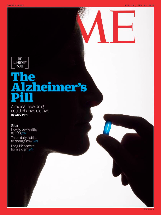PTX technology
Neurotrophin receptors on the surface of neurons are potent regulators of signaling networks that determine whether a neuron or its synapse survives or degenerates. These same signaling networks are affected in Alzheimer's disease and other neurological disorders. The Longo and Massa Laboratories at UCSF/SFVA and UNC, with funding from the Alzheimer's Drug Discovery Foundation (ADDF), Alzheimer's Association and NIH pioneered the development of compounds that bind to these receptors to prevent degenerative and promote regenerative signaling. Compounds have been developed that target the p75 or TrkB receptors individually and those that target the TrkB/TrkC receptors combined. PTX has the exclusive license to these compounds and has developed these and others in the commercial context including the establishment of extensive intellectual property. Through a combination of licensed patents and novel chemistry executed by PTX, the company has two development programs: p75 receptor program and Trk ligand program.
Compounds modulating p75 have shown efficacy in mouse models of Alzheimer's and Huntington's diseases, frontotemporal dementia, diabetic retinopathy, spinal cord injury, traumatic brain injury, chemotherapy-induced neuropathy and bladder dysfunction.
Compounds activating TrkB have shown efficacy in mouse models of Alzheimer's and Huntington's diseases, Rett syndrome, fragile x syndrome, post-traumatic epilepsy, stroke rehabilitation, multiple sclerosis, anterior-ischemic-optic neuropathy and traumatic brain injury.
Compounds activating TrkB and TrkC have shown improved outcomes in mouse models of Alzheimer's and Parkinson's diseases and in Charcot-Marie-Tooth disease, the most common form of inherited peripheral neuropathy.


